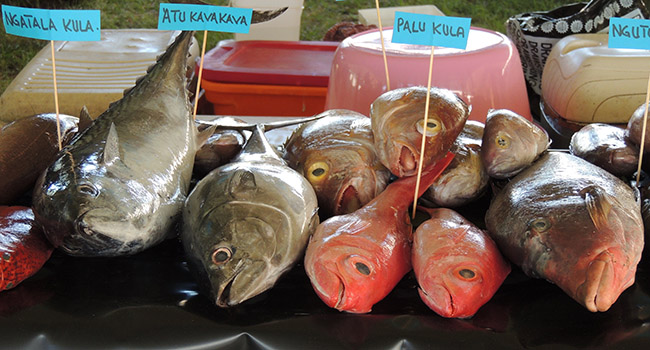
By Pesi Fonua
This week a World Trade Organisation Negotiating Group said they were ready to start new discussions on a multilateral agreement to curb fisheries subsidies. But while the WTO is pushing for an outcome by the end of the year, it remains an issue that small Pacific Islands states such as Tonga still have to fully address.
A draft document was circulated in June.
Adam Wolfenden, a Trade Justice Campaigner for the regional trade watchdog Pacific Network on Globalization (PANG), is one who points out that if the WTO accepts the rules it “will undermine the sovereignty and control of Pacific ocean resources by Pacific Island Countries.”
“An outcome like what is being proposed by the European Union, Australia, New Zealand and others will benefit those countries that have already built their fleet capacities, giving them an advantage in accessing the fisheries of other resource-holding countries like the Pacific Islands to the detriment of their domestic industries.”
Fisheries are crucially important in the Pacific both for governments and communities, he said.
“We are seeing the developed nations like Australia, New Zealand, the European Union and America in particular, are pushing for an ambitious outcome on cutting the types of fleet building subsidies that they have phased out while undermining the ability of developing countries to have the same opportunities to develop their domestic fleets.”
Tonga is one of six members of the 16-members Forum Island Countries, which are members of the WTO.
Territorial waters
Tonga over the years has been selling fishing rights to foreign fishing boats to fish within its 200 Exclusive Economic Zone (EEZ). In addition Tonga is also a signatory to a fishing treaty that Pacific Islands Nations had signed with the USA, allowing USA fishing companies to fish within Pacific Islands territorial water.
Tonga’s share of this fishing treaty with the USA is $2 million annually.
The Chief Executive Officer for Tonga’s Ministry of Fisheries, Dr Tu’ikolongahau Halafihi, told Matangi Tonga that currently there are 10 foreign fishing boats fishing within Tonga's EEZ.
For these fishing boats to have the right to fish within Tonga’s EEZ for a year, they each have to pay USD$14,000 up front, and they are expected to pay to Tonga 5% of the value of fish that they send back to their home country.
In addition, each fishing boat has to offload seven tons of fish for the Ministry of Fisheries to sell at a cheaper rate locally.
All of these 10 fishing boats are from Taiwan, “and they are fishing only for Tuna”, according to Dr Halafihi.
There are also 10 local tuna fishing boats. The rest of Tonga’s commercial fishing fleet are fishing for snapper and other fish.
Development goals
The WTO’s role in the global fisheries subsidies agenda is affirmed by the Sustainable Development Goal SDG 14.6, as part of the 2030 Agenda for Sustainable Development that was adopted by all the United Nations member states in 2015.
The SDG 14.6 targets that “by 2020, to prohibit certain forms of fisheries subsidies which contribute to overcapacity and overfishing, and eliminate subsidies that contribute to ‘Illegal, Unreported, and Unregulated’ (IUU) fishing, and refrain from introducing new such subsidies, recognizing that appropriate and effective special and differential treatment for developing and least developed countries should be an integral part of the WTO fisheries subsidies negotiation.”
Tonga
So what is the position of Tonga's Ministry of Fisheries with regards to the push by Australia, New Zealand and the EU for the WTO against the subsidising of Fishing in the Pacific Region?
Dr Halafihi said that if Tonga can develop its commercial fishing industry and have 30 commercial fishing boats, “we will then be able to reduce the number of foreign fishing boats, fishing in Tonga’s waters.”
“When we bring them in, at least we get a bit of money from them; if not they will go to Fiji.”
Need for negotiation
Pauline Siasau, head of department, for the Ministry of Trade and Economic Development, stressed that the government's intention is to achieve the SDG14.6 Goal, to stop the subsidising of fishing “because it encourages illegal fishing.”
“We support the SDG 14.6 Goal, but there is still need for negotiation because there are still many different views on the issue.”
The question of whether Tonga is earning more exporting fish than from selling fishing rights in its EEZ remained unanswered.
Pauline said that a WTO Ministerial Conference on the fishing subsidies that was to be held in Kazakhstan in June was postponed because of the CoViD-19 pandemic and would be held next year.
See also: WTO members set work programme for text-based phase of fisheries subsidies talks



